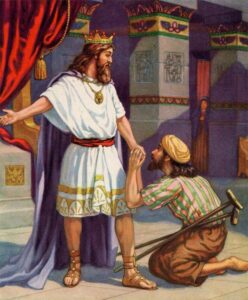Introdution
The angelic society is often depicted in religious texts as having a complex and structured hierarchy. The Bible and other theological works describe various ranks and orders of angels, each with distinct roles and responsibilities. This blog will explore the hierarchy of angels, providing insights into their functions and significance within the spiritual realm.
The Nine Orders of Angels
Christian theology, particularly as detailed by Pseudo-Dionysius the Areopagite, traditionally divides angels into nine orders, grouped into three spheres. Each sphere has a unique focus and set of duties.
First Sphere: Closest to God
1. Seraphim
The Seraphim are the highest order of angels, residing closest to God. They are described as having six wings and are perpetually in God’s presence, worshipping and praising Him. Their primary role is to purify and maintain the holiness of God’s throne (Isaiah 6:1-3).
2. Cherubim
Cherubim are depicted as guardians of God’s glory and the divine mysteries. They are often shown with multiple faces and wings, symbolizing their all-seeing nature. Cherubim were placed to guard the entrance to the Garden of Eden after Adam and Eve were expelled (Genesis 3:24).
3. Thrones
The Thrones represent God’s judicial power and authority. They are described as beings of great peace and humility, serving as instruments of God’s justice and divine decisions. Thrones are said to be covered in eyes and wheels of fire, symbolizing their role in observing and executing God’s will (Colossians 1:16).

Second Sphere: Heavenly Governors
4. Dominions
Dominions regulate the duties of lower angels, ensuring that the cosmos remains in order. They are responsible for maintaining divine order and overseeing the implementation of God’s commands. Dominions often carry scepters or orbs, signifying their role in governance (Ephesians 1:21).
5. Virtues
Virtues are responsible for bestowing divine grace and blessings upon the material world. They are associated with miracles and the power to perform great feats that manifest God’s will. Virtues are often seen as channels through which God’s energy flows (1 Peter 3:22).
6. Powers
Powers are warrior angels tasked with defending the cosmos from evil spirits and ensuring the order of the physical universe. They oversee the distribution of power among humans and maintain cosmic balance. Powers are often depicted as armored soldiers ready for battle (Ephesians 6:12).
Third Sphere: Earthly Messengers and Guardians
7. Principalities
Principalities are the protectors of nations and leaders. They guide and inspire rulers to uphold justice and righteousness. Principalities are involved in the governance of the world, ensuring that God’s will is reflected in human leadership (Daniel 10:13).
8. Archangels
Archangels are chief messengers who deliver God’s most important messages to humanity. The most well-known archangels include Michael, Gabriel, and Raphael. They play crucial roles in significant events, such as announcing the birth of Christ and leading the heavenly armies (1 Thessalonians 4:16; Jude 1:9).
9. Angels
Angels are the closest to humanity and are often assigned as personal guardians. They protect, guide, and assist individuals in their spiritual journey. Guardian angels are believed to be present with each person, offering guidance and protection (Psalm 91:11).
Conclusion
Understanding the hierarchy of angelic society provides profound insights into the roles and functions of these divine beings. Each order of angels serves a unique purpose, contributing to the harmony and governance of both the spiritual and material worlds. By exploring these heavenly ranks, believers can gain a deeper appreciation for the divine order and the intricate workings of God’s creation.








Hi there, just became aware of your blog through Google, and found that
it’s truly informative. I’m goinng to watch out for
brussels. I’ll be grateful if you continue this in future. Many
people will be benefited from your writing. Cheers!
Hmm is anyone else having problems with the images
on this blog loading? I’m trying to figure out if its a problem on my
end or if it’s the blog. Any suggestions would be greatly appreciated.
Hello There. I found your blog using msn. This is a really well written article.
I’ll make sure to bookmark it and return to read more of your useful information. Thanks for the post.
I’ll definitely return.